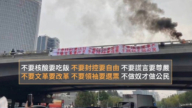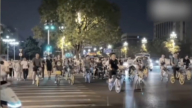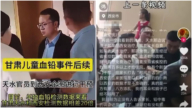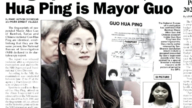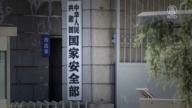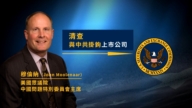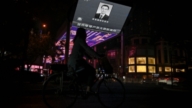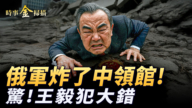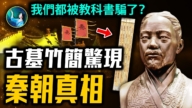【新唐人2013年01月09日讯】“中国社会科学院社会学研究所”7号发布了《社会心态蓝皮书》,其中调查显示,中国社会的总体信任指标,在2012年进一步下降,已经跌破及格线。报告还指出,中国社会出现了所谓“反向情绪”。学者对此表示,这一切都是当局一手造成的。
蓝皮书认为,中国目前的社会只有不到一半的人认为,社会上大多数人可信,只有二到三成信任陌生人。群体间的不信任也在加深和固化,不仅表现为官民、警民、医患、民商等社会关系的不信任,还表现在不同阶层、群体之间的不信任,从而导致社会冲突增加。越来越多相同利益、身份、价值观念的人们采取群体形式表达诉求、争取权益,群体间的摩擦和冲突增加。
蓝皮书指出,幼童遭辗路人视而不见的“小悦悦事件”,以及“南京彭宇案”引发老人跌倒要不要扶的讨论,甚至刘翔奥运会摔倒后的质疑,还有,对击毙连续杀人犯周克华是否真实等的疑问,都成为社会信任恶化的注脚。
独立评论员邢天行:“法律的不公在中国是最严重的,它不止是不公,甚至它是走在作恶的前列,配合政府的官员在作恶,这就导致整个社会的紊乱。老百姓被侵权,他没地方去诉求,更没有人为他主持公道,所以它导致政府应该解决的问题,变成了人和人之间这种完全不信任。”
独立评论员邢天行表示,社会的不公、政府不作为是社会信任度下降的根本原因,其中法律的不公,起到了很坏的作用。
另外,上海的杨佳袭警案、邓玉娇案、凤凰少女跳楼案、湖南永州朱军枪击法官案、黑龙江伊春刺死信访干部案等,都明显表达了部分民众对于司法部门的不满。
而蓝皮书对北京、广东、江苏、浙江和四川5个省市的农民工调查后发现,64%的调查对像感觉到社会不公平,47%的调查对像表示自己外出打工期间受到的不公平对待“比较多”。约60%的农民工会采取“不干了或忍气吞声”等消极逃避的方法来应对不公,约14%的人会选择正规维权途径,约15%的人选择恐吓事主等非正规途径,还有约9%的人会采取破坏性的泄愤方式。
蓝皮书指出,不断发生的社会性事件,导致社会情绪的耐受性和控制点降低,社会事件的引爆点降低。弱势群体中一些本该同情的却欣喜、本该愤恨的却钦佩、本该谴责的却赞美,蓝皮书警告说,这些“社会情绪反向”值得警惕。
事实上,社会情绪反向由来已久。
2008年7月孤身闯入上海公安闸北分局的杨佳,杀6位、伤4位警察,受到广大民众赞赏,甚至被誉为大侠称号。
山东大学退休教授孙文广:“公开的媒体经常报导一些虚假的东西,对真相极力掩盖,特别对中共当局的丑行尽量掩盖,像《南方周末》、《炎黄春秋》都受打压。群众冲突增加,还有反向的情绪,这个都是当局一手造成的。”
“山东大学”退休教授孙文广还指出,目前,民众的不满无处申诉,甚至还遭到打压,民间正义的声音也不能被听到,而媒体则充斥与事实相反的谎言。孙文广认为,这只会进一步增加民众不满情绪。
蓝皮书课题组也承认,近年来民众不满情绪主要存在三个指向:一是对于贪污腐败、不作为的官员,二是“为富不仁”的商人,三是针对一些不公平的社会现象,以及造成这些不公平的公共权力机关。
孙文广表示,《南方周末》新年献辞遭到“篡改”引发的事件,当局的继续高压,只会让中共失掉民心和增加民众的不满。他指出,如果中共当局不顺应潮流继续打压,中东独裁者的结局就是中共的前车之鉴。
采访/田净 编辑/宋风 后制/钟元
Blue Book: China Social Trust Below the Baseline
On Jan. 7, Chinese Academy of Social Sciences released
“Blue Book of Social Mentality.”
The report shows that the overall social trust has declined
in 2012, dropping below the baseline.
The report said that in the Chinese society had emerged
the so-called “reverse mood.”
According to scholars,
the authorities are the leading cause of it.
The report states, less than 50% of Chinese people think
they can trust most people, and 20-30% can trust strangers.
Distrust among various groups had also worsened.
This manifests between the public and officials, civilians
and police, patients and doctors, citizens and businessmen.
It can be seen between different classes and groups too,
which causes social conflicts to intensify.
Similar interests’ groups protect their needs together,
they struggle for gain, thus the conflicts are increasing.
The report mentions the cases of ‘little Yueyue hit by a van
and left unassisted’ and ‘the case of Peng Yu from Nanjing,’ making people question whether to help elderly on the street.
Plus, the suspicion over Olympic athlete Liu Xiang’s fall,
and the police killing the murderer Zhou Kehua, with these incidents becoming strong examples of social distrust.
Xing Tianxing (Current Affairs Commentator):
“This is the most serious issue of law injustice.
It is not only injustice, but the leading cause of crime.
It encourages government officials to commit crimes, which brings disorder to society.
People’s rights are violated; there is no place to appeal,
no justice.
This is not being solved by the government,
and it leads to distrust amongst people.”
Xing Tianxing, an independent commentator said, inequality
in society and irresponsible government are the fundamental cause of social distrust.
The injustice of law makes things even worse.
Many cases manifest people’s anger
towards the unjust system.
Like Shangai’s Yang Jia killing cops’ incident;
the Deng Yujiao’s stabbing an official in self-defense’ case;
Zhu Jun from Yongzhou, Hunan Province, who killed three
judicial workers; a petitioner stabbing to death a cadre from an appeal office in Yichun, Heilongjiang Province, etc.
The report said, for the survey they selected migrant workers
in Beijing, Guangdong, Jiangshu, Zhejiang and Sichuan.
Of them, 64% think there is inequality in the society,
47% felt they were treated unfair at work most of the time.
Almost 60% responded that they deal with unfairness
by leaving, or by bearing it quietly.
About 14% of them prefer to appeal, 15% – to threaten
their superiors, and 9% would choose to revenge.
The Blue Book points out, social events continue to occur,
leading to reducing the control over the society’s sentiments, and bringing the tipping point of incidents closer.
Instead of gaining sympathy, some cases win people’s
cheering, and others get admirations instead of criticism.
Thus, the report calls this a “reverse mood,”
and warns to alert about its social danger.
Actually, this “reverse mood” of the society
exists for a while now.
On July, 2008, Yang Jia went in a Shanghai’ police station,
killed 6 cops, and injured 4 others; he was praised and called ‘hero’ by the public.
Sun Wenguang (retired Professor, Shangdong University):
“China’ media often report false news, covering up the truth.
Especially when it comes to covering up the scandals
of the Chinese Communist Party (CCP).
For example, the Southern Weekly newspaper,
and the Yanhuang Chunqiu magazine are both suppressed.
In addition, increasing of protests and the ‘reverse mood,’
are also caused by the government.”
Sun Wenguang pointed out that now people don’t have
place to appeal, and are being beaten instead.
Civil injustice can’t be heard, media lie too, thus Sun thinks
these problems would escalate further the public discontent.
The Blue Book team admitted that there are three aspects
of public discontent.
They are, the corrupt and irresponsible officials; the corrupt
businesspeople; and authorities that cause social inequality.
Sun said, the Southern Weekly’s New Year address was
a censored incident, which authority continue to suppress.
With such actions they can only lose people’s trust,
and increase public discontent.
Sun added that if the CCP continues with its suppression,
the Middle East dictators’ fate should be a lesson for CCP.


